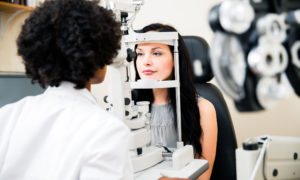Jan. 9, 2019

When to get care, and when to pass, can come down to finances for anyone, but most especially for those who are young, according to reporting by Scott Hensely for NPR.
NPR wondered how often people deferred or skipped care because of cost, so it asked about it in the latest NPR-IBM Watson Health Health Poll. The survey queried more than 3,000 households nationwide in July.
For starters, people were asked if they had postponed, delayed or canceled some kind of health care service, such as a doctor’s appointment or medical procedure, because of cost in the preceding three months. About 1 in 5 people had done so.
“I am pretty impressed that it was only 20 percent that had postponed or delayed or canceled health-care services,” says Dr. Anil Jain, vice-president and chief health information officer for IBM Watson Health. “I thought it would be higher.”
Other Articles to Explore
The proportion of people who said cost had deterred them from getting care varied by age, with a third of people under 35 saying it had been a problem compared with only 8 percent of people 65 and older.
Jain told Hensely that one area that may not be getting enough attention is preventive care. “I think it’s important that young people never feel the need to forgo or delay preventive services,” he says.
NPR also asked people if they – or members of their household — had difficulty paying for some kind health-care service in the preceding three months. A quarter said yes. And again the strain varied by age, with 41 percent of people under 35 saying they had experienced difficulty while only 11 percent of people 65 and older had.
Almost all the respondents to the survey, about 97 percent, had some form of health coverage. The sample size of respondents reporting no insurance wasn’t large enough to support further analysis within the uninsured population.
In addition, NPR asked specifically about people’s experience receiving and filling prescriptions. In the three months before the survey, two-thirds of people said they’d received a prescription. A vast majority of older Americans – 84 percent – said they’d received a prescription, while 39 percent of people under 35 had.

























